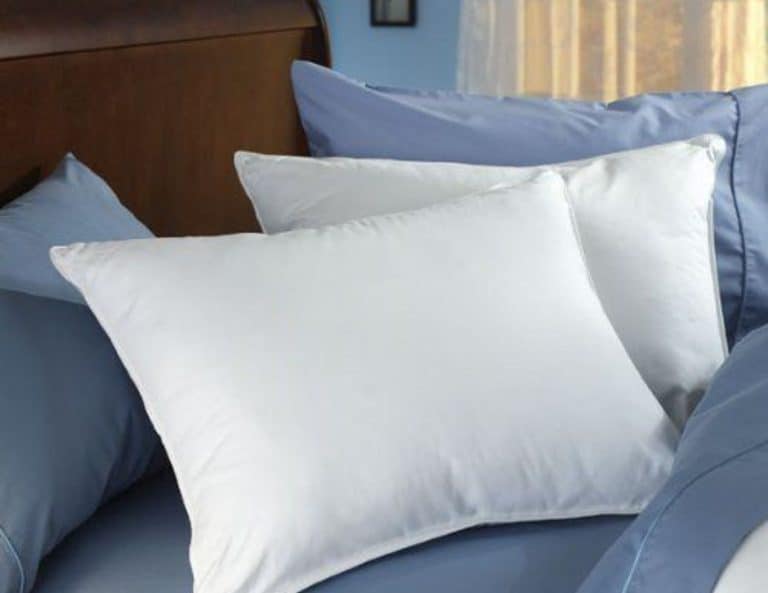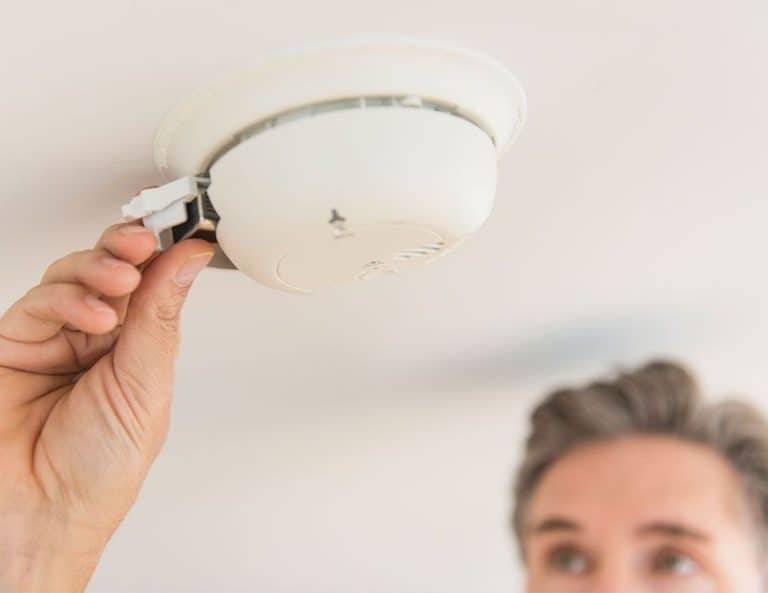Are you curious about how often hotels replace their mattresses?
If you’re short on time, here’s a quick answer to your question: Hotels typically replace their mattresses every 7 to 10 years.
In this article, we will explore the factors that influence the frequency of mattress replacements in hotels and discuss the importance of maintaining comfortable and clean sleeping accommodations.
Let’s dive in and learn more about the lifespan of hotel mattresses.
Factors Affecting Mattress Lifespan
When it comes to the lifespan of hotel mattresses, several factors come into play. By understanding these factors, hotel owners can make informed decisions about when to replace their mattresses, ensuring optimal comfort for their guests. Let’s explore some of the key factors that affect the lifespan of hotel mattresses.
Quality and Durability
The quality and durability of a mattress are perhaps the most crucial factors in determining its lifespan. High-quality mattresses, made with durable materials, have a longer lifespan compared to cheaper alternatives. Hotel owners should invest in mattresses that are specifically designed for commercial use, as they are built to withstand the rigors of frequent occupancy. These mattresses often come with warranties that provide peace of mind and ensure that the investment is protected.
Occupancy Rate
The occupancy rate of a hotel plays a significant role in the wear and tear experienced by mattresses. The more guests a hotel accommodates, the more frequently the mattresses will be used. Hotels with high occupancy rates may need to replace their mattresses more frequently than those with lower occupancy rates. For example, a hotel with a high turnover of guests may need to replace their mattresses every five to seven years, while a hotel with lower turnover may be able to extend the lifespan to ten years or more.
Cleaning and Maintenance
The way mattresses are cleaned and maintained also affects their lifespan. Regular cleaning and maintenance can significantly extend the life of a mattress. Hotels should follow manufacturer guidelines for cleaning and use mattress protectors to prevent stains, spills, and damage. Additionally, regular flipping and rotating of the mattress can help distribute weight evenly and prevent sagging in specific areas. By implementing a consistent cleaning and maintenance routine, hotels can ensure that their mattresses remain in good condition for a longer time.
Quality and Durability
When it comes to hotels, the quality and durability of mattresses are crucial factors. Hotel owners understand the importance of providing a comfortable and restful sleep experience for their guests. Therefore, they invest in high-quality mattresses that can withstand the wear and tear of frequent use.
Materials Used
Hotels often opt for mattresses made from durable materials such as high-density foam, memory foam, or hybrid constructions. These materials are known for their ability to provide excellent support and comfort over an extended period. Additionally, they are resistant to sagging and can maintain their shape even with constant use.
Some hotels also choose to use mattresses with natural materials, such as organic cotton or latex, to cater to guests who prefer an eco-friendly sleep environment. These materials are not only durable but also offer additional benefits like temperature regulation and hypoallergenic properties.
Construction
The construction of hotel mattresses plays a significant role in their durability. Hotels often opt for mattresses with sturdy foundations, reinforced edges, and multiple layers of foam or springs. These features help distribute weight evenly, reduce motion transfer, and prevent premature sagging.
Additionally, some hotel mattresses are designed with removable and replaceable components. This allows hotels to replace worn-out parts, such as the top comfort layer or the mattress cover, without having to replace the entire mattress. This approach helps extend the lifespan of the mattress and ensures that guests always have a comfortable sleep surface.
Brand Reputation
Hotel owners understand the importance of partnering with reputable mattress brands. They often choose brands that have a proven track record of manufacturing high-quality and durable mattresses. These brands invest in research and development to ensure that their mattresses meet the rigorous demands of the hospitality industry.
When selecting mattresses for their hotels, hotel owners often consider factors such as customer reviews, industry awards, and the brand’s history of providing durable products. By choosing mattresses from trusted brands, hotels can ensure that their guests enjoy a comfortable and restful sleep experience.
Occupancy Rate
When it comes to determining how often hotels replace mattresses, one of the key factors to consider is the occupancy rate. This refers to the percentage of rooms that are occupied at any given time. Hotels with high occupancy rates typically have a higher turnover of guests, which means mattresses are being used more frequently and may need to be replaced more often.
Average Length of Stay
The average length of stay is an important factor to consider when assessing how often hotels replace mattresses. Hotels with shorter average stays tend to have higher turnover of guests, resulting in mattresses being used more frequently. For example, if a hotel has an average length of stay of just one night, the mattresses are likely to experience more wear and tear compared to hotels where guests stay for several nights or longer.
Frequency of Use
The frequency of use is another crucial factor to consider. Hotels that cater to business travelers or have a high volume of guests passing through for short stays often have mattresses that are being used more frequently. This can lead to more wear and tear over time, requiring more frequent replacement. On the other hand, hotels that primarily serve long-term guests or have lower occupancy rates may not need to replace mattresses as frequently.
Weight Distribution
The distribution of weight on hotel mattresses can also impact their lifespan. Hotels that frequently host events or have guests with heavier body weights may find that their mattresses wear out more quickly. Similarly, hotels that offer larger bed sizes, such as king or queen-sized beds, may experience more strain on the mattresses, leading to more frequent replacements.
When it comes to determining the specific frequency of mattress replacement in hotels, it can vary depending on the factors mentioned above as well as the quality of the mattresses themselves. It is recommended that hotels regularly assess the condition of their mattresses and consider replacing them when signs of wear and tear, discomfort, or hygiene issues arise.
For more information on hotel mattress replacements and best practices, you can visit websites such as Hotel Management or Hotel Business.
Cleaning and Maintenance
Regular Cleaning
Keeping hotel mattresses clean is an essential part of maintenance. Regular cleaning not only improves the lifespan of the mattress but also ensures the comfort and satisfaction of guests. Hotel staff typically follow a strict cleaning schedule that includes vacuuming the mattress surface, disinfecting with safe cleaning agents, and using mattress protectors to prevent spills and stains.
According to a study conducted by National Center for Biotechnology Information, mattresses in hotels are recommended to be cleaned at least once every three months. This helps to remove dust mites, dead skin cells, and other allergens that accumulate over time. Additionally, frequent cleaning reduces the risk of mold growth and unpleasant odors.
Bed Bug Prevention
Hotel operators prioritize bed bug prevention as these pests can quickly spread and cause significant discomfort to guests. To prevent bed bugs, hotels often implement proactive measures such as regular inspections, using mattress encasements, and training staff to identify signs of infestation.
According to the U.S. Environmental Protection Agency, hotels should inspect and treat infested rooms immediately to prevent the spread of bed bugs. This includes removing infested mattresses and replacing them with new ones. By regularly monitoring and addressing bed bug issues, hotels can maintain a clean and pest-free environment for their guests.
Stain Removal
Accidental spills and stains are inevitable in hotel rooms. To ensure guest satisfaction, hotels have protocols in place for stain removal. Hotel staff are trained to handle different types of stains using specialized cleaning products and techniques.
Hotels often invest in high-quality mattress protectors that are waterproof and stain-resistant. These protectors act as a barrier between the mattress and potential spills, making it easier to clean and maintain the mattress. In cases where stains are difficult to remove, hotels may opt for professional cleaning services to ensure the mattress is restored to its original condition.
Importance of Mattress Replacements
When it comes to running a successful hotel, the comfort and satisfaction of guests should be a top priority. One key aspect that contributes to guest comfort is the quality of the mattresses provided. As guests spend a significant amount of time in their hotel rooms, a comfortable and supportive mattress can greatly enhance their overall experience. That is why regular mattress replacements are crucial for hotels.
Guest Comfort and Satisfaction
Ensuring guest comfort and satisfaction is essential for hotels to maintain a positive reputation. A worn-out mattress can lead to a poor night’s sleep, resulting in guests feeling tired, achy, and dissatisfied with their stay. By regularly replacing mattresses, hotels can provide guests with a comfortable and restful sleep experience, increasing the likelihood of positive reviews and repeat bookings. After all, a well-rested guest is a happy guest!
Hygiene and Allergies
Mattresses accumulate dirt, sweat, dead skin cells, and allergens over time. This can create an unhygienic sleeping environment and trigger allergies in sensitive individuals. Regular mattress replacements help hotels maintain cleanliness and prevent the buildup of allergens. This is particularly important for guests with allergies or respiratory issues, as a clean and allergen-free mattress can greatly contribute to their comfort and well-being during their stay.
Brand Image and Reputation
The condition of a hotel’s mattresses can have a significant impact on its brand image and reputation. Guests expect a certain level of quality and cleanliness when choosing a hotel. By consistently replacing mattresses, hotels demonstrate their commitment to providing a superior guest experience. This attention to detail can help hotels build a positive brand image, attract more guests, and ultimately, boost their reputation in the hospitality industry.
Conclusion
In conclusion, hotels typically replace their mattresses every 7 to 10 years to ensure guest comfort, maintain hygiene standards, and uphold their brand image.
Several factors influence the lifespan of hotel mattresses, including the quality and durability of materials used, occupancy rates, and cleaning and maintenance practices.
Regular cleaning, bed bug prevention, and stain removal are essential for prolonging the lifespan of mattresses and providing a comfortable sleeping experience for guests.
By prioritizing mattress replacements, hotels can enhance guest satisfaction, minimize allergy risks, and safeguard their reputation in the hospitality industry.
Now that you have a better understanding of how often hotels replace their mattresses, you can appreciate the effort that goes into providing a restful and enjoyable stay for guests.






